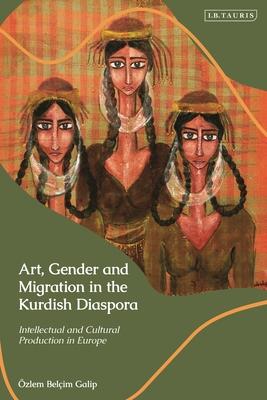This book focuses on the cultural and intellectual activities of Kurdish migrant women through artistic and aesthetic forms of production in Belgium, France, Germany, Sweden and the UK. Using in-depth interviews with over 40 Kurdish women artists, Ozlem Galip examines how artistic, literary and cultural productions, incorporating the fields of film, theatre and music, are articulated within the structures of nation states, leading to the interrogation of the impact of western and local knowledge, patriarchy, the nation-state and globalisation. Galip also analyses how European policies affect the development of cultural engagement of Kurdish migrant women, and how such engagements help these women to integrate into European society.
Examining the gendered experiences of diaspora from all four regions of Kurdistan; Iraq, Iran, Syria and Turkey, this book challenges ideas about gender, migration and art through the lens of women artistic production with a focus on women-led activism and the changing integration and migration policies of Europe.

Art, Gender and Migration in the Kurdish Diaspora: Intellectual and Cultural Production in Europe
This book focuses on the cultural and intellectual activities of Kurdish migrant women through artistic and aesthetic forms of production in Belgium, France, Germany, Sweden and the UK. Using in-depth interviews with over 40 Kurdish women artists, Ozlem Galip examines how artistic, literary and cultural productions, incorporating the fields of film, theatre and music, are articulated within the structures of nation states, leading to the interrogation of the impact of western and local knowledge, patriarchy, the nation-state and globalisation. Galip also analyses how European policies affect the development of cultural engagement of Kurdish migrant women, and how such engagements help these women to integrate into European society.
Examining the gendered experiences of diaspora from all four regions of Kurdistan; Iraq, Iran, Syria and Turkey, this book challenges ideas about gender, migration and art through the lens of women artistic production with a focus on women-led activism and the changing integration and migration policies of Europe.